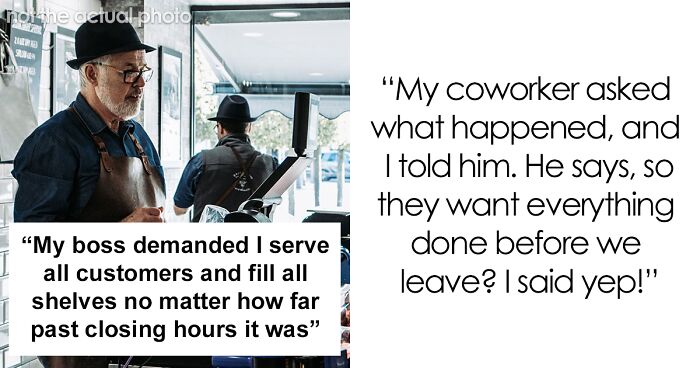
Ignorant Boss Reprimands Deli Worker For Refusing To Serve A ‘Karen’, Regrets His New Rule After Worker Complies Maliciously
InterviewHow many times have we heard the phrase ‘The customer is always right’? For many bosses, that’s a promising mantra that will move them up the corporate ladder like a few lucky rolls in a Snakes and Ladders boardgame. But for the employees? It’s a slippery slope which, more often than not, leaves them navigating punishing dichotomy with no good outcome. However, sometimes workers get caught between a rock and a hard place which leaves them no other choice but to prove to their senseless managers, at whatever the cost, that the system needs some restructuring.
As deli worker u/SpoodsMcBeef tells in his riveting story, the whole mess began after a very late customer demanded to be served right before closing. Having been following his strict sanitization and overtime protocols, the employee politely refused. As a natural chain of events, this being the 21st century, a negative Google review and the manager’s outrage followed.
Seeing no other option but to oblige to management’s contradicting demands, the author of the story got to work and did what he was told. Did that satisfy his superiors? No. But some good ol’ malicious compliance made sure that from there on out, this deli will make some exceptions when serving late customers.
Sometimes the only way to show your boss there’s a gap in their ‘Customer is always right’ logic is to make their wallets bleed
Image credits: Kyle Mackie (not the actual photo)
And what’s a better way to do that than blindly following their orders
Whether incited by a hungry, never-ending clientele or workplaces with bottomless quotas that stretch far beyond any reasonable expectation, the culture of overtime is on a hot-seat more than ever before. While the horrid conditions of worn-out workers in Japan were always known by the West, statistics show that we’re slowly getting there as well.
Besides the annually increasing (unpaid) overtime, which contributes to a mouth-watering sum of $300 billion businesses lose each year because of work-related stress, working more than one normally should can also lead to a decrease in concentration, various mental health issues and extreme fatigue. Believe us when we say ‘working myself to the bone’ isn’t only a playful phrase — it actually puts more than 745,000 workers in the grave every year.
In order to learn more about this cultural issue, we reached out to Joshua Krook, a researcher, public speaker and the author of the ‘Our culture of overtime is costing us dearly’ article. He tells us his interest in this topic began when he was reading about career prospects in Australia for doctoral law candidates like himself. “Part of my research started to diverge on issues of employment and lawyers particularly, who happen to have extremely long hours most of the time,” Krook told Bored Panda.
At the time of writing his research, two major law firms in Australia were being investigated for overworking their employees. And even Australia’s federal ‘Fair Work Act’, which allows workers to refuse working more than 38 hours — a standard workweek — was powerless against people mindlessly willing to go the extra mile no matter the cost.
“That’s the legal protection. What happens actually is the cultural and social pressure becomes overwhelming,” he said. “Let’s say you work at a big law firm and you want to stick to 40 hours. But if everyone around you is working 60 hours a week and pulling all-nighters to get projects done — there’ll be a huge amount of social pressure to follow their lead. And even if you don’t do that, and you assert your legal rights, your employer has many methods to punish you in various micro ways.”
All folks agreed that businesses like this deserve nothing else
Peter Cappelli, professor of management at the Wharton School and the author of ‘The Future of the Office: Work from Home, Remote Work, and the Hard Choices We All Face’, believes our work culture is moving in this direction because “it’s easy to do” for companies that encourage overtime. “If the business is squeezed for cash, they can just push employees to work longer. I don’t think most employers start out expecting that their jobs will require 50-60 hours per week. But it happens because there is no pushback,” Cappelli told Bored Panda.
Similar to Joshua, he thinks part of the problem lies in companies not being honest about the actual expectations of working time. “Most people quit because, when they get there, they don’t think the arrangements are fair nor what they have expected,” he pointed out. And statistics, although not directly, back this up: more than 1-in-5 (21%) full-time employees are “working more than they want to.” Some are lured by premium pay rates (“1.5 times the normal rate in the US,” Cappelli points out), others — simply have no other choice.
One of the ways to combat this, Joshua says, is to make employers reveal the actual working hours. “I think there should be a legal requirement to include working hours within job descriptions to show how much people will actually be working,” he said. By knowing if you’re selling your soul and personal life for money, people could make a more informed decision.
Before we start pondering how beneficial that would be, Joshua explains a bigger issue lies in the culture we’ve been raised in. “There are some law firms in Australia that give awards for the employee with the most number of hours every year.” Bonuses, award systems, ’employee of the month’ — these are just a few examples of workplace mechanisms set in place to “enforce this culture of overtime work” without breaking any laws, Krook says.
And so far, it seems to be working.
What really upsets me is that woman posting a nasty review bc she didn't get what she wanted. What happened to :"oh ok, I understand, I'm late today". But nooooo she has to complain and b!tch b!tch b!tch.
She probably figured she'd get managers groveling at her feet begging her to accept a shower of freebies for the horrific experience of not instantly getting her entitled way because the employees needed to keep their jobs and not wind up fired for disobeying management edicts about closing time and avoiding OT (not to mention food service regulations on sanitation).
Load More Replies...I've never had a retail job where you clocked out the same time the business closed. Cleaning up or counting tabs is usually done after hours so you'd usually work an additional 30 mins to an hour after closing. They have a strange business practice and to avoid future complaints they would need to put up a sign explaining the available hours. The customer had a right to be upset here, but it's on the store's stupid policy. The guy was cornered and honestly I commend him for sticking it to the boss.
Honestly, at my current retail job, if you're a floor employee, you leave when the store leaves unless specifically scheduled after. We have a couple managers who take care of after-closing tasks and a team lead who deals with making sure the registers are done, and they're not out until about a half hour after close. We take care of all tasks before the store closes(usually). To me, not clocking out at the time the store closes seems weird on a closing shift.
Load More Replies...When I look at reviews, I automatically disregard the one-star reviews as people who were likely big pains in the aśś who got the service they deserved, which is why when I give a place a bad review I give then a two-star review and then explain the specifics of my dissatisfaction. Most recently I gave a 1-1/2 star review to a very popular place in my small, heavily touristed town and mentioned being ignored because I was a woman there alone, getting a requested glass of water with a huge blob of greasy meat on the outside lip of the glass, and having my food come not as I ordered it but them being unwilling to redo it.
I read the reviews to get an idea of what the situation was. I usually go by quality of food before quality of service in those cases. If there's constantly "bad service" reviews I'd think twice, but if there's 10 good food ones and one bad service ones it's safe to assume the person caused themselves to have bad service not the staff.
Load More Replies...What really upsets me is that woman posting a nasty review bc she didn't get what she wanted. What happened to :"oh ok, I understand, I'm late today". But nooooo she has to complain and b!tch b!tch b!tch.
She probably figured she'd get managers groveling at her feet begging her to accept a shower of freebies for the horrific experience of not instantly getting her entitled way because the employees needed to keep their jobs and not wind up fired for disobeying management edicts about closing time and avoiding OT (not to mention food service regulations on sanitation).
Load More Replies...I've never had a retail job where you clocked out the same time the business closed. Cleaning up or counting tabs is usually done after hours so you'd usually work an additional 30 mins to an hour after closing. They have a strange business practice and to avoid future complaints they would need to put up a sign explaining the available hours. The customer had a right to be upset here, but it's on the store's stupid policy. The guy was cornered and honestly I commend him for sticking it to the boss.
Honestly, at my current retail job, if you're a floor employee, you leave when the store leaves unless specifically scheduled after. We have a couple managers who take care of after-closing tasks and a team lead who deals with making sure the registers are done, and they're not out until about a half hour after close. We take care of all tasks before the store closes(usually). To me, not clocking out at the time the store closes seems weird on a closing shift.
Load More Replies...When I look at reviews, I automatically disregard the one-star reviews as people who were likely big pains in the aśś who got the service they deserved, which is why when I give a place a bad review I give then a two-star review and then explain the specifics of my dissatisfaction. Most recently I gave a 1-1/2 star review to a very popular place in my small, heavily touristed town and mentioned being ignored because I was a woman there alone, getting a requested glass of water with a huge blob of greasy meat on the outside lip of the glass, and having my food come not as I ordered it but them being unwilling to redo it.
I read the reviews to get an idea of what the situation was. I usually go by quality of food before quality of service in those cases. If there's constantly "bad service" reviews I'd think twice, but if there's 10 good food ones and one bad service ones it's safe to assume the person caused themselves to have bad service not the staff.
Load More Replies...


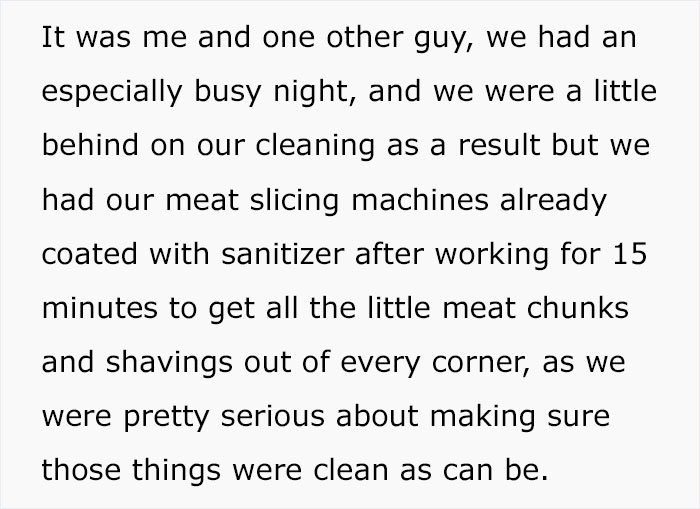
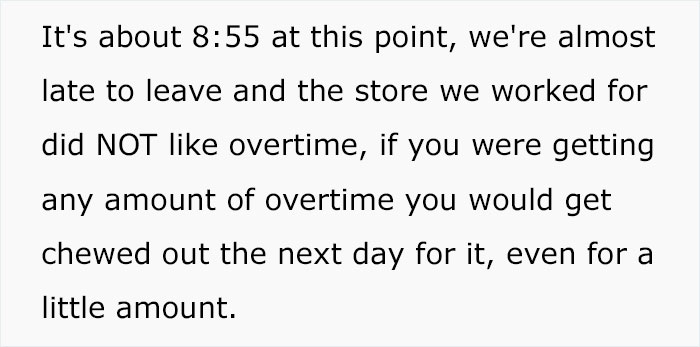

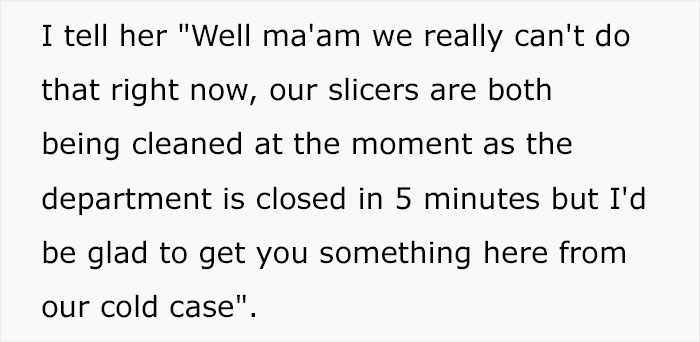

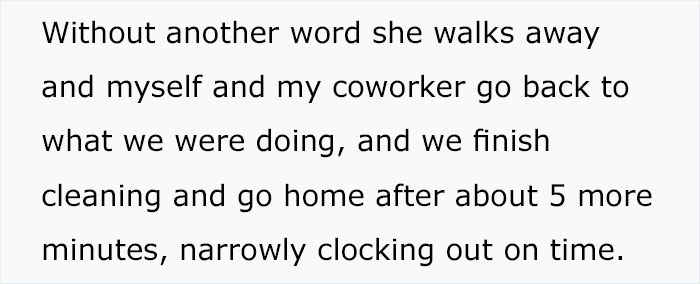
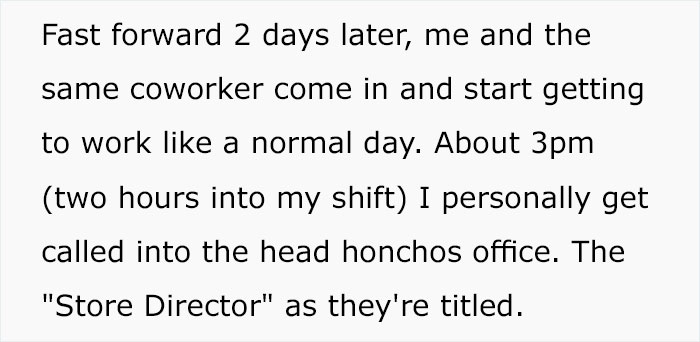

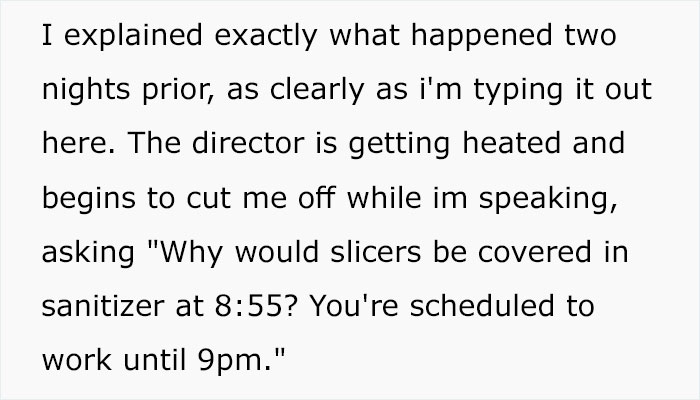

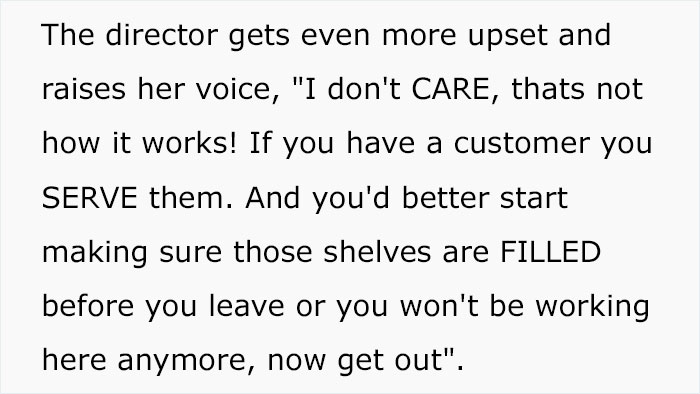
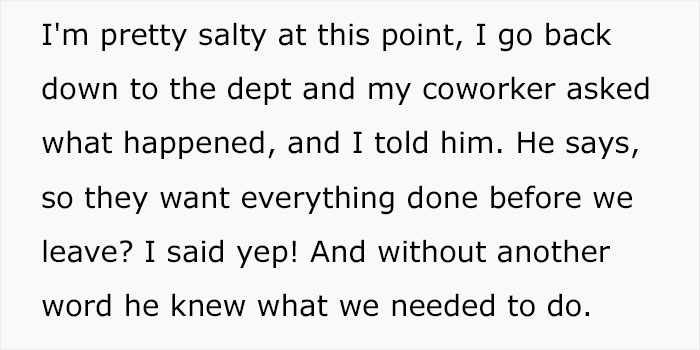
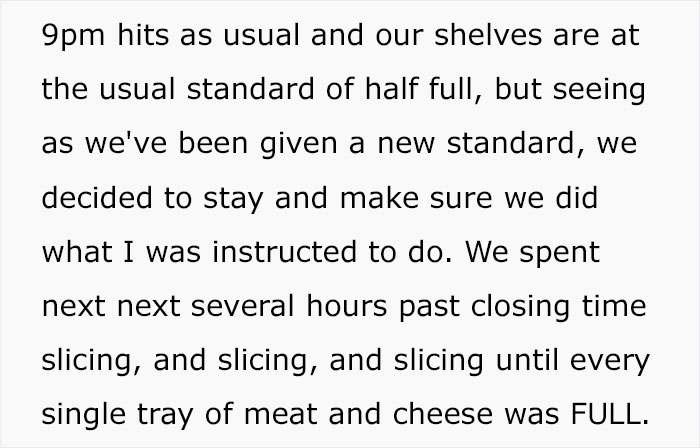

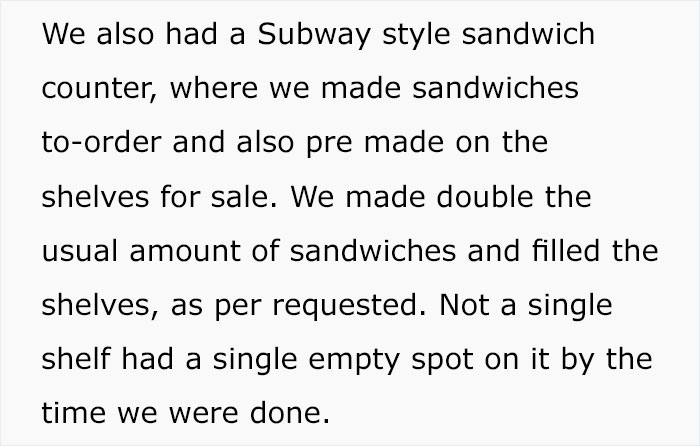

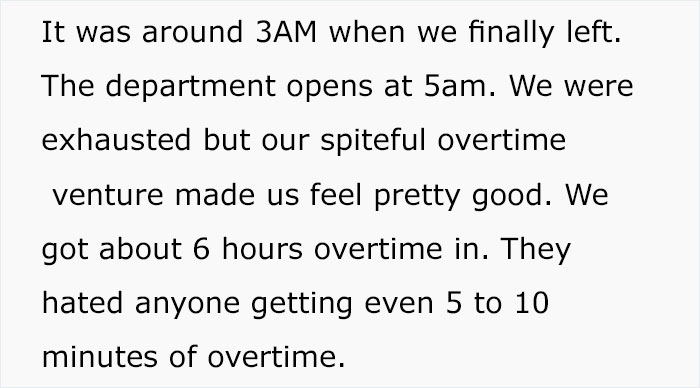
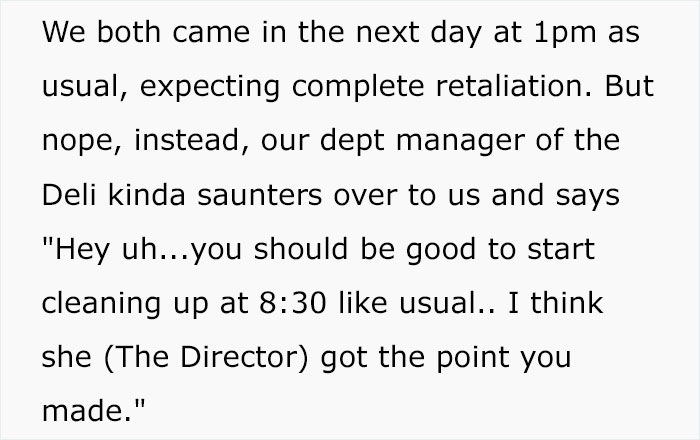
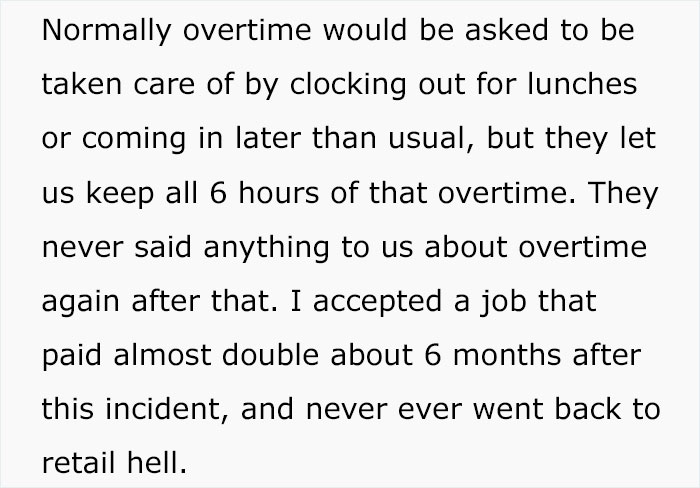
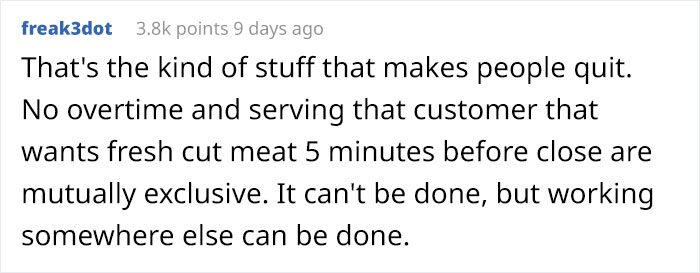
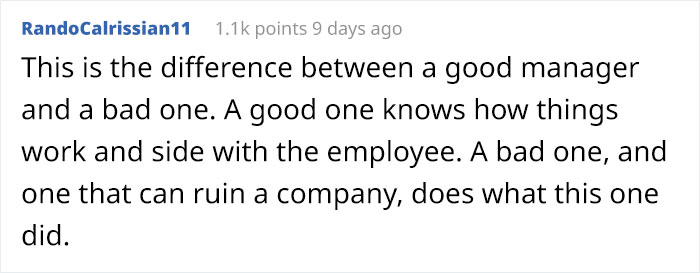
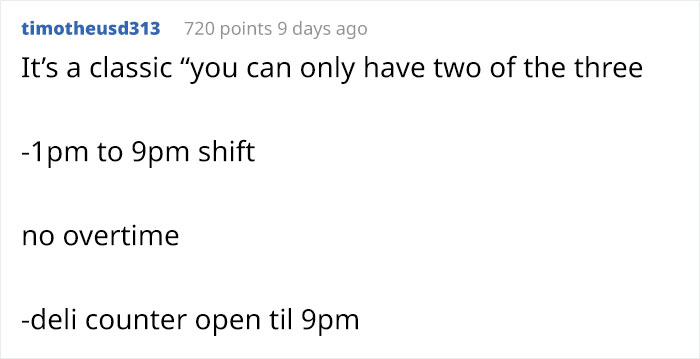







119
41